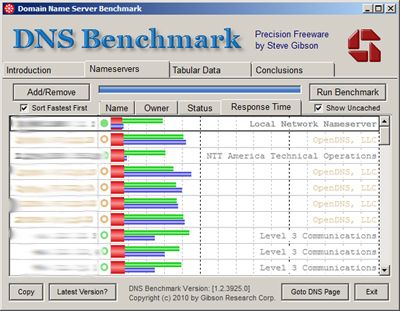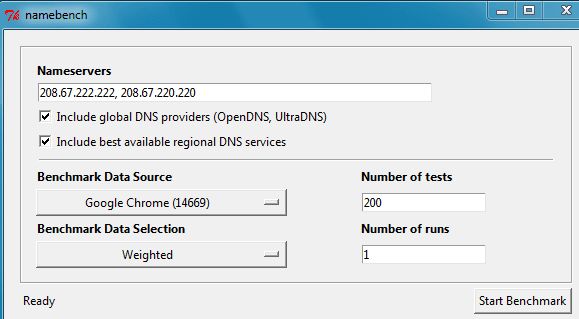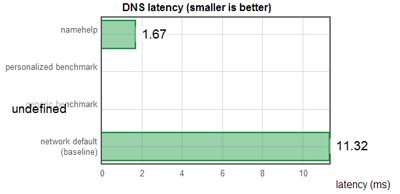"The Internet is just a series of tubes" as one man so wisely stated. Unfortunately, it’s not as simple as that. There’s a complex architecture that supports the Internet, and data packets need to travel some interesting routes in order to reach you. If you can optimize the paths that your data takes, you can boost your Internet speed.
Now, there are some limitations. Data packets are essentially light, and light has a fixed speed of travel. Internet data packets go from point A to B, and there’s going to be a point where it can’t travel any faster. So don’t expect to pump yourself up from 100 KB/s to 1 MB/s just by tweaking your DNS settings. However, you can noticeably improve your web browsing times just by optimizing your DNS records.
What Is DNS Optimization?
In simple terms, the Internet (at least the part of the Internet that contains webpages) is a network of computers where each computer holds a record of other computers on the Internet. These records are a list of "domain names" and these servers are "domain name system" (DNS) servers. That’s a drastically simplified explanation, but it’s enough to understand why DNS is important.
This network of DNS servers is how data packets traverse the Internet and reach their destinations. They hop from server to server, asking each server along the way for the correct route towards the target computer. This is called "routing".
Now, certain DNS servers may have outdated records. Some servers may have inefficient records that point your data packets towards the scenic route, taking you all around the Internet before the packets can reach the destination. If you can track the most efficient DNS servers paths, then you can cut away that excess travel time. Thus, DNS optimization.
Benchmarking Your DNS Performance
There are certain tools for "DNS benchmarking" that can help you determine sub-optimal DNS records and fix them. In essence, they compare the response times of various DNS servers that you've used recently against publicly-available DNS servers.
This DNS server comparison is used to rank the various DNS servers in order of their response times and a few other factors. By optimizing this list, your data packets are sent out to the most efficient (read: fastest) DNS routes, which ends up increasing your browsing speed - sometimes significantly.
When it comes to benchmarking, I use Domain Name Speed Benchmark. The download is extremely light (only ~160KB) and the program is extremely easy to use. After you run the scan, there’s a handy little “Conclusions” tab that will summarize the state of your DNS connections. Full instructions, which are only 3 steps, are listed on the program’s website.
NameBench is another great program that can identify problems in your DNS records. It tells you where your Internet performance is failing and tries to find the most responsive DNS servers for your location. Use it before you use any DNS optimizer because if you already have high-performance DNS records, there’s little to gain.
Optimizing DNS Performance
So you’ve run some sort of DNS benchmark program and the conclusions state that your DNS connections are rather shoddy? Well, that’s when we know it’s time for you to clean up your records and improve web performance through a bit of optimization.
That’s where NameHelp comes in. NameHelp is a program that was developed by researchers at Northwestern University. It sits in the background of your system and silently optimizes dns settings to contact the fastest servers for your location. All it takes is a quick installation and configuration. Once that’s done, you’ll see a boost to your web browsing speed (given that your DNS benchmark wasn’t so great to start with).
NameHelp is available on Windows, Mac, and Linux systems free of charge.
Conclusion
If you have a high-speed Internet connection but notice that your web browsing speed isn’t all that it’s cracked up to be, then your problem may lie in the DNS records. By optimizing your computer’s DNS records, you can find the fastest routes for your data packets to take when traveling the Internet.
Again, it won’t be a massive boost to your Internet speed, but in some cases it can result in quite a noticeable improvement in web browsing time. Run the benchmarks and see if you need to fix your DNS settings.
Image Credit: Web Address Via Shutterstock




